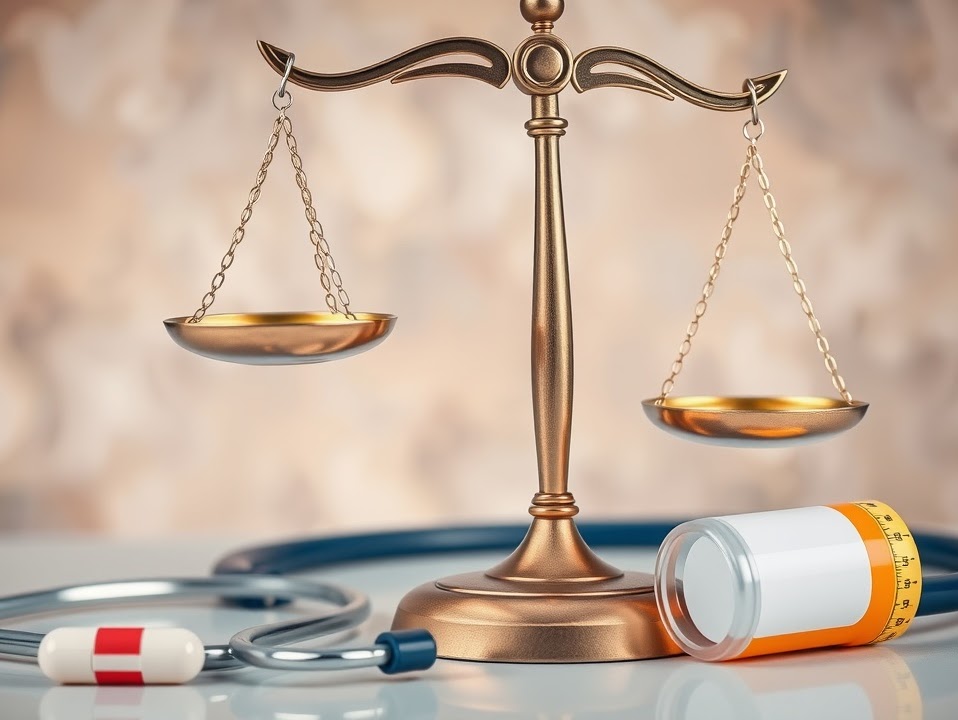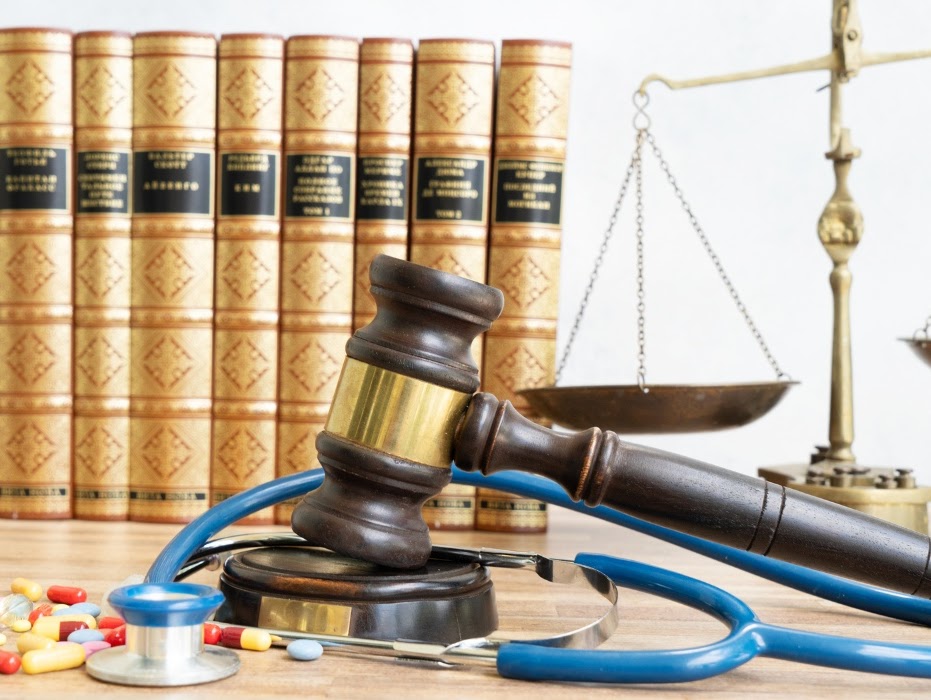Understanding the legal framework for healthcare negligence
Understanding the legal framework for healthcare negligence is crucial for healthcare professionals who want to protect themselves from potential liability issues. Healthcare professionals have a duty to provide a standard of care that meets the expectations of their profession. When this duty is breached, resulting in harm to a patient, it can lead to a claim of negligence.
Healthcare negligence is a complex area of law that requires a thorough understanding of both legal principles and medical practices. It involves determining whether the healthcare professional deviated from the standard of care expected in their field and whether this deviation caused harm to the patient. In order to establish negligence, it must be proven that there was a duty owed to the patient, a breach of that duty, causation between the breach and the harm suffered, and actual damages resulting from the breach.
In cases of healthcare negligence, patients may seek compensation for medical expenses, lost wages, pain and suffering, and other damages. Healthcare professionals need to be aware of their legal responsibilities and take steps to mitigate their risks. This includes obtaining malpractice insurance, following best practices in patient care, maintaining accurate medical records, obtaining informed consent from patients before treatment, and seeking legal counsel when faced with potential claims.
By understanding the legal framework for healthcare negligence, healthcare professionals can better protect themselves from liability issues and ensure that they are providing high-quality care to their patients. It is important for healthcare professionals to stay informed about changes in laws and regulations related to malpractice liability in order to minimize risks and maintain their professional reputation.
Common types of healthcare professional liability claims
Healthcare professionals, including doctors, nurses, and other medical staff, can sometimes find themselves facing liability claims due to a variety of reasons. These claims can arise from a number of common types of incidents that occur within the healthcare setting.
One common type of healthcare professional liability claim is related to misdiagnosis or failure to diagnose a medical condition. Patients may suffer harm if their illness is not accurately identified in a timely manner, leading to delayed treatment or improper care. This can result in serious consequences for the patient and lead to legal action against the healthcare provider.
Another common issue that can give rise to liability claims is medication errors. Healthcare professionals are responsible for prescribing and administering medications correctly, but mistakes can happen due to factors such as miscommunication, confusion over similar-sounding drug names, or incorrect dosages. These errors can have serious implications for patients and may result in legal action being taken against the provider.
Surgical errors are also a significant cause of liability claims against healthcare professionals. Mistakes made during surgery, such as wrong-site surgery or leaving foreign objects inside the patient's body, can lead to severe complications and long-term harm. Patients who experience surgical errors often seek compensation for the damages they have suffered as a result of these mistakes.
In addition to these common types of liability claims, healthcare professionals may also face allegations of negligence, breach of confidentiality, or misconduct in their interactions with patients. These issues can have serious repercussions for both the provider's reputation and their ability to practice medicine effectively.
Overall, healthcare professional liability claims are a complex and challenging aspect of working in the medical field. It is essential for providers to prioritize patient safety and adhere to best practices in order to minimize the risk of facing legal action due to errors or misconduct in their practice. By maintaining high standards of care and communication with patients, healthcare professionals can help reduce the likelihood of encountering liability claims in their work.
Factors contributing to medical malpractice lawsuits
Medical malpractice lawsuits are a complex and often emotional legal issue that can have profound impacts on healthcare professionals. There are several factors that contribute to the rising number of malpractice lawsuits being filed against doctors, nurses, and other healthcare providers.
One major factor is the increasing complexity of medical treatments and procedures. As medical technology advances, so too does the potential for errors in diagnosis, treatment, and care. Healthcare professionals are under immense pressure to keep up with these advancements while also providing safe and effective care to their patients.
Another factor is the rise of patient expectations and consumerism in healthcare. Patients today are more informed and empowered than ever before, thanks to the wealth of information available online. This can lead to higher expectations for outcomes, which can sometimes be unrealistic or unattainable.
Communication breakdowns between healthcare providers and patients can also contribute to medical malpractice lawsuits. Misunderstandings or lack of communication about treatment options, risks, and alternatives can lead to misunderstandings or even harm to patients.
Additionally, systemic issues within healthcare organizations such as understaffing, inadequate training, or poor supervision can create environments where medical errors are more likely to occur. When mistakes happen due to these factors, patients may seek legal recourse through a malpractice lawsuit.
Ultimately, medical malpractice lawsuits are a complex issue with no easy solutions. By addressing these contributing factors through improved communication, training, and support for healthcare professionals, we can work towards reducing the frequency of these lawsuits while ensuring patient safety remains a top priority.
Ways to mitigate risks and prevent medical errors in practice
In the healthcare field, medical errors and professional liability are serious concerns that can have devastating consequences for both patients and healthcare providers. To mitigate risks and prevent medical errors in practice, there are several key strategies that healthcare professionals can implement.
First and foremost, effective communication is essential in preventing medical errors. This includes clear and concise communication between healthcare team members, as well as open and honest communication with patients. By ensuring that everyone involved in a patient's care is on the same page, misunderstandings and mistakes can be minimized.
Another important factor in mitigating risks is thorough documentation. Accurate and detailed documentation of all patient interactions, procedures, medications administered, and other relevant information is crucial in providing quality care and protecting against liability claims.
Furthermore, ongoing education and training are essential for healthcare professionals to stay up-to-date on best practices and advancements in their field. By continually improving their knowledge and skills, healthcare providers can reduce the likelihood of errors occurring.
Additionally, implementing standardized protocols and guidelines can help streamline processes and reduce the risk of human error. By following established protocols for procedures, medication administration, infection control, and other aspects of patient care, healthcare providers can ensure consistency and reliability in their practice.
Finally, fostering a culture of safety within healthcare organizations is critical in preventing medical errors. Encouraging reporting of near misses or potential risks, promoting teamwork among staff members, and prioritizing patient safety above all else are all important components of a safety-focused culture.
In conclusion, by following these strategies to mitigate risks and prevent medical errors in practice, healthcare professionals can provide safer care for their patients while also protecting themselves from liability claims. It is crucial for all members of the healthcare team to work together towards a common goal of delivering high-quality care with minimal risk to patients.
Importance of obtaining professional liability insurance
As a healthcare professional, obtaining professional liability insurance is crucial to protect yourself and your practice from potential lawsuits and financial ruin. In today's litigious society, patients are increasingly quick to take legal action against healthcare providers for any perceived negligence or malpractice.
Having professional liability insurance ensures that you have the necessary coverage in case a patient files a claim against you. This type of insurance not only helps cover the costs of legal defense, but also any damages that may be awarded to the plaintiff. Without this protection, you could be personally liable for paying out these costs, which can quickly deplete your savings and assets.
In addition to financial protection, having professional liability insurance can also provide peace of mind. Knowing that you are covered in case of a lawsuit allows you to focus on providing quality care to your patients without constantly worrying about the threat of legal action.
Furthermore, many healthcare facilities and organizations require their employees to carry professional liability insurance as part of their employment agreement. Failure to have this coverage could result in termination or loss of privileges at these institutions.
Overall, obtaining professional liability insurance is a wise investment for healthcare professionals. It not only protects your finances and reputation, but also ensures that you can continue practicing medicine without fear of devastating legal consequences.
Steps to take when facing a malpractice claim
Facing a malpractice claim as a healthcare professional can be a daunting and stressful experience. It's important to know the steps to take in order to protect yourself and your reputation.
The first step is to remain calm and gather all relevant information related to the claim. This includes reviewing patient records, medical notes, and any other documentation that may be pertinent to the case. It's important to have a clear understanding of what happened and why the claim is being made against you.
Next, it's crucial to contact your malpractice insurance provider as soon as possible. They will guide you through the process of responding to the claim and provide you with legal support if needed. It's important to cooperate fully with your insurance company and provide them with all requested information in a timely manner.
It's also essential to seek legal counsel from an experienced healthcare attorney who specializes in malpractice claims. They will be able to advise you on how best to respond to the claim and help you navigate the legal process.
Throughout this process, it's important to maintain open communication with all parties involved, including the patient or their family members, your insurance company, and your legal counsel. Transparency and honesty are key in handling a malpractice claim effectively.
Finally, it's important to learn from the experience and take steps to prevent similar incidents from happening in the future. This may involve additional training or education, implementing new protocols or procedures, or seeking guidance from colleagues or mentors.
Facing a malpractice claim can be challenging, but by following these steps and seeking support from professionals who specialize in healthcare liability, you can navigate the process successfully and protect your reputation as a healthcare professional.





